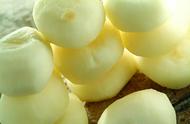Unit 9 I like music that I can dance to.
一、短语:
1. catch up with 追上,赶上 2. different kinds of music 各种不同的音乐
3. quiet and gentle songs 轻柔的歌曲 4. on display 展览
5. her own songs 她自己的歌曲 6. be important to 对……重要
7. Yellow River 黄河 8. Hong Tao’s latest movie 洪涛最近的电影
9. get together 聚在一起 10. on display 展览,展出
11. come and go 来来往往 12.stay away from 远离……
13.one of the best known Chinese photographers 世界上最有名的中国摄影家之一
二、重点句子:
1. I love singers who write their own music. 我喜欢自己创作曲子的歌手。
2. We prefer music that has great lyrics. 我们更喜欢歌词很棒的曲子。
3. What do you dislike about this CD. 你不喜欢这张CD的什么?
4. What does it remind you of? 它使你想起了什么?
5. It does have a few good features, though. 然而,它的确也有一些好的方面。
6. She really has something for everyone. 每个人的确都能从她的作品 中领悟到一些东西。
7. Whatever you do, don’t miss this exhibition. 无论怎样,你都不能错过这次展出。
8. As the name suggests, the band has a lot of energy.
正如乐队名字所暗示的那样, 这支乐队很有活力。
10. Some people say they are boring, but others say they are great.
有些人说他们很无聊,但也有人说,他们是伟大的。
10.I f I were you, I’d eat nuts instead. 如果我是你,我会改吃坚果。
三、知识点:
1. dance to sth.:随着…跳舞(用的介词是to,这一点要注意),如
She likes dancing to the music. 她喜欢随着音乐而跳舞。
2. though = although:作连词,翻译成虽然,尽管,放在句子中间/句首,不能和but连用,如
Though/Although it was very late, he went on working. 虽然很晚了,但他还在工作。
Mr. Smith , though he was young, did it very well. 史密斯先生虽然年轻,却做得很好。
3. over the years 很多年来,常与现在完成时连用,如
Over the years, they've planted many trees on the hills. 多年来他们已在山上种植了许多树。
4. photography n. 摄影;photograph n. 照片;photographer n. 摄影师。
5. be in agreement:意见一致,常与介词on /about连用,如
They are in agreement on that question. 他们对那个问题意见一致。
6.unfortunately adv. 不幸地;fortunately adv. 幸运地;fortunate adj. 幸运的。
7. remind sb. of sb./sth. 提醒,使…记起…(重要考点,经常考到),如
This song reminds him of his mother. 这首歌使他想起了他的妈妈。
8.along with:伴随…、同… 一道,如I will go along with you. 我同你一道去。
9.be sure to do:一定/肯定要做某事,如It is sure to snow. 肯定要下雪。
10.energy n. 活力、精力;energetic adj. 有活力的、精力充沛的。
11. mainly adv. 主要地、首要地;main adj. 主要的。
12.fisherman:渔夫,复数形式是 fishermen。
13. discuss v. 讨论;discussion n. 讨论。

Unit 10 You're supposed to shake hands.
一、短语:
1. shake hands 握手 2. for the first time 第一次
3. table manners 餐桌礼仪 4. drop by 偶然/顺便拜访
5. after all 毕竟,终究 6.(in)the wrong way 以错误的方式
7. be relaxed about 对……比较随意 8. a bit 一点
9. make faces 做鬼脸 10.point at 指向
11. face to face 面对面 12.make a toast 敬酒
二、重点句子:
1. Where I’m from, we’re pretty relaxed about time. 我所在的地方,对时间是相当宽松的。
2. Often we just walk around the town center, seeing as many of our friends as we can.
我们经常走遍市中心,看尽可能多的朋友。
3. It’s even better than I thought it would be. 事情比我想象的要好得多。
4. They go out of their way to make me feel at home. 他们花尽心血让我感觉不到拘束。
5. Although I still make lots of mistakes, it doesn’t bother me like it used to.
尽管我经常出一些错,但它不像过去那样打扰我。
三、知识点:
1. be supposed to do:应该(注意它的翻译,另外supposed后面用的是不定式to do),如
We are supposed to stop smoking. 我们应该停止吸烟。
2.You should have asked what you were supposed to wear. 你本应该问清楚怎么样穿才得体。
上句中的“should have asked”是“情态动词 现在完成时”表示过去本应该做某事,事实上没有做。
She should have gone to Beijing. 她本应该去了北京。(没有去)
3. pretty adv. 相当、十分,如He is pretty friendly. 他相当友好。
adj. 美丽的 如She is a pretty girl.她是一个美丽的女孩。
4. on time 按时
5. start doing = start to do:开始做某事(start的用法属于常考内容,记住它的这两个用法),如He started reading= He started to read. 他开始阅读。
6. go out of one's way to do:特意/专门做某事,如
He went out of his way to make me happy. 他特意使我高兴。
7.下面这些用法大家务必记住,虽然这些用法很多,而且比较容易搞混淆,但是它们确实经常考,大家可以结合例子记忆。(第三个用法和第五个用法考的比较多)
(1)get/be used to sth.:习惯于……,如
I wash clothes every day. But I'm used to it. 我每天都洗衣服,但我习惯了。
(2)get/be used to doing:习惯于做……,如I am used to washing clothes. 我习惯于洗衣服了。
(3)be used to do:被用于做……,如The knives are used to cut things. 小刀被用来切东西。
(4)be used for doing:被用于做…,如The knives are used for cutting things. 小刀被用来切东西。
(5)used to do:过去常常做…,如She used to watch TV after school. 她过去放学后常常看电视。
8. find/think it 形容词 to do sth.:发现/认为做某事是怎么样的,如
I find it difficult to remember everything. 我发现要记住每一样事是困难的。
I think it hard to study English. 我认为学英语是困难的。
9. can't stop doing:忍不住做某事,如I can't stop laughing. 我忍不住笑。
10. learn…by oneself:自学(重要用法),如I learn English by my self. 我自学英语。

Unit 11 Sad movies make me cry.
一、短语:
1. make me sleepy 使我困倦 2. drive sb. crazy 使……发疯
3. yes and no 好坏参半 4. feel left out 感觉被忽视
5. sleep badly 睡眠很差 6. don’t feel like eating 不想吃东西
7. for no reason 毫无理由 8. neither…nor… 既不……也不……
9. let …down 使…失望 10. take one’s position 替代我的职位
11. to start with 起初 12. get the exam result back 取考试成绩单
13. remain unhappy forever 永远不幸福 14. a shirt of a happy person 一件快乐人的衬衫
二、知识点:
1.would rather意为“宁愿……”,表示句子主语的愿望、选择,后接省去to的不定式,如
He’d rather join you in the English Group. 他宁愿加入到你的英语小组中来。
如果表示“宁愿(可)……也不愿……”,则用句型would rather…than…。在would rather和than后面所连接的两个对比部分一般要一致,如
The brave soldier would rather die than give in. 那个勇敢的士兵宁死不屈。
2.使役动词make的用法常见于以下结构:
① make 名词(代词) 省略to的动词不定式,如
My parents often make me do some other homework. 我父母常让我做些其他的作业。
这一结构中的不定式短语在主动结构中是宾语补足语,必须省去to,变为被动结构时,不定式短语作主语补足语,这时必须带to,如
She was made to work for the night shift. 她不得不上夜班。
②make 名词/代词 -ed分词短语,如What made them so frightened? 什么使他们这样害怕?
③make 名词/代词 介词短语或名词短语,如
She made him her assistant. 她委派他做自己的助手。
④make 名词(代词) 形容词或形容词短语,如
The good news made us happy. 这条好消息使我们很高兴。
⑤ make 形式宾语it 形容词或名词(作宾语补足语) 从句(作真正的宾语),如
They want to make it clear to the public that they do an important and necessary job.
他们要向公众表明,他们所做的工作不但重要,而且是必不可少的。

Unit 12 Life is full of the unexpected.
一、短语:
1. leave one’s backpack at home 把背包忘在家里 2. get back to school 返回学校
3. start teaching 开始教学 4. go off 响铃
5. rush out the door 冲出房门 6. give sb a lift 捎某人一程
7. miss both events 错过两个事件 8. be about to do sth 正要做某事
9. stare in disbelief at 难以置信地盯着。 10. jump out of bed 跳下床
11.collect the math homework 收数学作业 12.make the apple pie 制作苹果馅饼
13.show up 出现 14.add the green beans 加绿豆荚
15.complete the work for one’s boss 16. raise above the burning building
完成老板的工作 从正在燃烧的楼上升起
二、知识点:
1.by the time作连词引导时间状语从句,当从句用一般过去时,主句用过去完成时;当从句用一般现在时,主句用一般将来时或将来完成时。如:
(1)By the time I got outside, the bus had already left. 当我出来的时候,公共汽车已经走了。
(2)I’ll be in bed by the time you get home. 你到家时,我已经上床睡觉了。
2. 表示“把某物忘在某处”要用词组leave sth in a place。如:
I've left my umbrella at home. 我把伞忘在家里了。
forget意为“遗忘某物”,指忘记一件具体的东西,但不能有具体的地点。如:
I forgot my umbrella yesterday. 我昨天忘了带伞。
3. above的用法:
(1)作介词:
在……上面,如:The moon is above the trees now. 月亮现在正位于树梢上。
在…之上,超过,如:They are children above six years old. 他们是六岁以上的孩子。
高于;胜过,如:In the company, Dick ranks above Tom. 在公司里,迪克的地位比汤姆高。
不屑于,如:He considered himself above doing such things. 他认为自己是不会去做那种事的。
(2)作副词:
在上面;向上面,如There are snowy peaks above. 上面是白雪皑皑的群峰。
(级别、数目等)更高;更大;更多,如:
Men and women of 18 and above are eligible to vote. 年龄在十八岁以上的男女有投票表决权。
在上文,如:See the examples given above. 见上述例子。
(3) 作名词:上文;上述事实。
如:In addition to all of the above, she won a Prize in 1980. 除上述外,她还在1980年获奖。
4. alive, living与live辨析:
(1)alive:活着的、又生气的,主要用作表语(有时可用作后置定语,但不用作前置定语),可用于人或动物。如:He must be still alive. 他一定还活着。
注意:若alive本身有修饰语,则也可用作前置定语。如:
He is a really alive student. 他的确是一个十分活跃的学生。
(2)living:活的、现存的,可用作表语或定语,可用来形容人或物。如:
Are your grandparents still living? 你的祖父母还健在吗?
alive 和 living 表示“活着的”,两者含义很接近,只要句法适合,有时可互换。
如:Who is the greatest living poet?
Who is the greatest poet alive? 谁是当代最伟大的诗人?
若需严格区分,两者仍有差别:living通常是客观描述某人“尚在人间”或“健在”,而alive则主要指生与死的“界限”。如:
He was still alive when I reached the hospital. 当我赶到医院时他还活着。
(3)live:活的、有生命的,通常只用作定语(前置),可用于动物或植物,但一般不用于人。如:He bought some live fish. 他买了几条活鱼。
5. empty的用法:
(1)作形容词,表示空的、空闲的,常用表语或定语,此时其反义词是full。如:
He took his empty coffee cup back to the counter. 他把空咖啡杯送回到柜台。
(2) 作动词,表示排空、倒出,后常接宾语,此时其反义词是fill。如:
He emptied his tool bag. 他腾出自己的工具袋。












